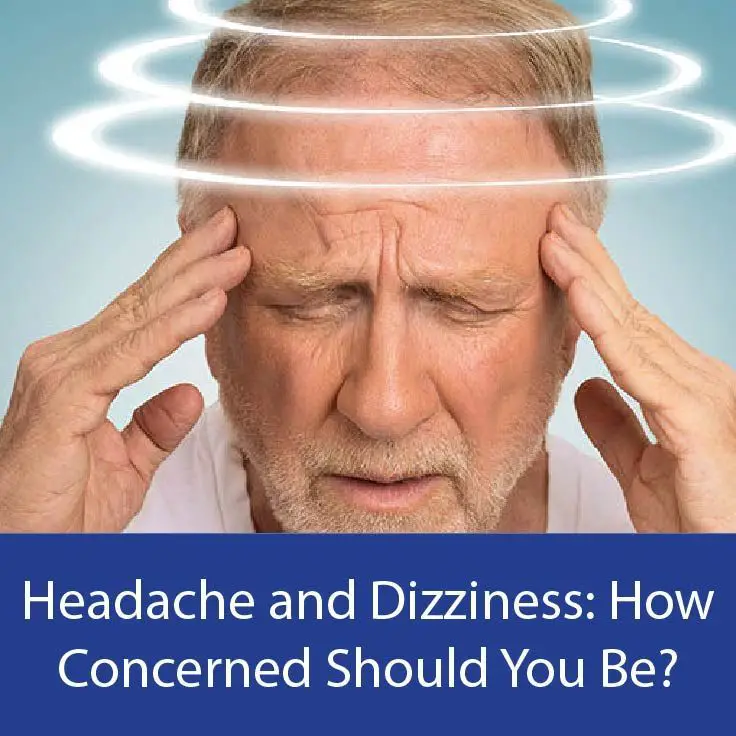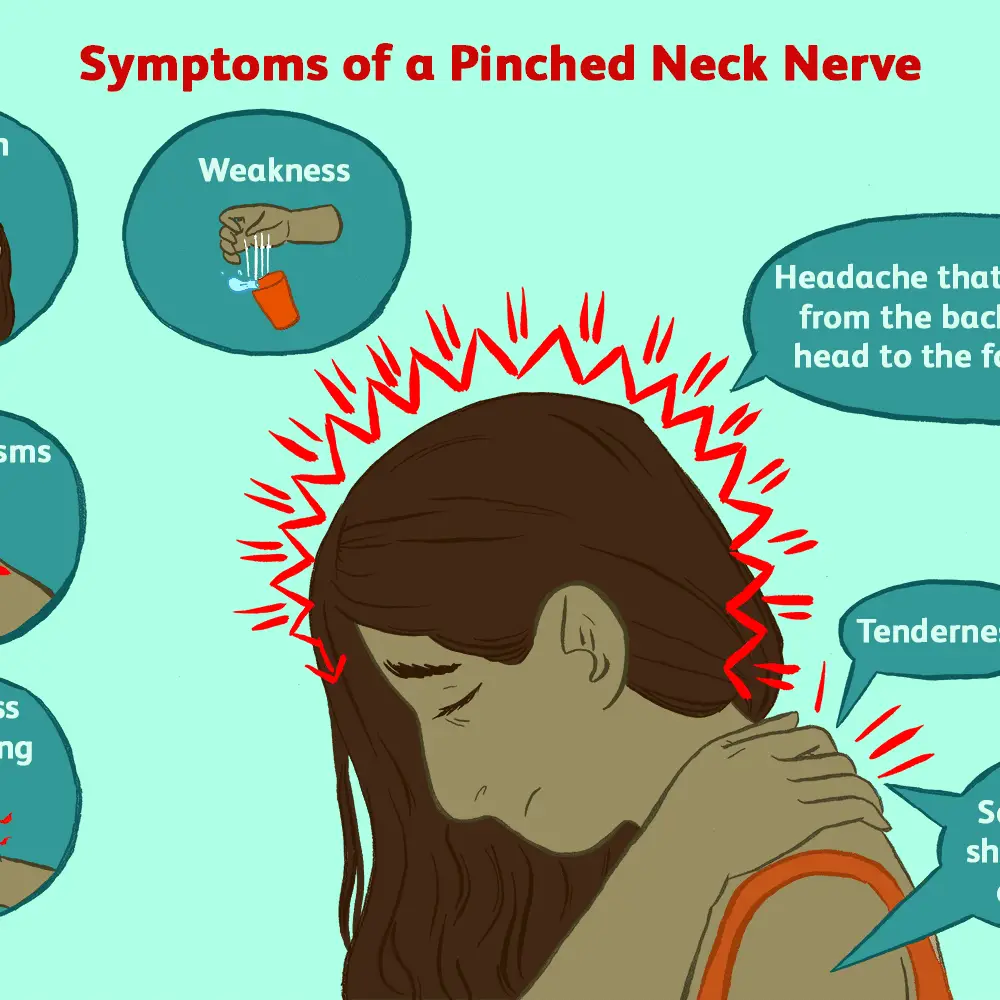Is It Possible That I Have Pots And Was Incorrectly Diagnosed
This is entirely possible. Given how common POTS symptoms are and how unfamiliar many doctors are with this condition, diagnostic mishaps happen. POTS is frequently misidentified as chronic fatigue syndrome, fibromyalgia, myofascial pain syndrome, anxiety disorder, ADHD, irritable bowel syndrome, myositis, etc. It is also possible that you have both POTS and one of these conditions, which may complicate the diagnosis. Sometimes people with POTS are told that its all in your head, implying that the cause of their symptoms is psychological. If you feel like something is physically wrong, dont hesitate to seek a second, and even a third or fourth opinion.
COVID-19 and POTS: Is There a Link?
Although many people recover quickly from COVID-19, the disease caused by the coronavirus, others who recover may continue to experience symptoms for months. Researchers are still determining the cause of these extended symptoms, but some COVID-19 long-haulers may actually be dealing with POTS.
What Does Neck Pain With Dizziness Feel Like
While dizziness typically has a rapid onset, neck pain may develop either gradually or quickly. Many people with neck pain accompanied by dizziness experience one or more of the following:
- Dull ache or general soreness in the neck, which may also go into the shoulder or up into the head
- Sharp or electric-like pain or tingling that may come and go, possibly radiating down into the arm and/or hand
- Unsteadiness or imbalance when trying to walk, stand, and/or go up or down steps
- Light-headedness or a feeling of the head floating or disconnected from the body
- Feeling faint or suddenly sleepy, such as about to lose consciousness
- Visual disturbances or blurry vision in one or both eyes
- Pressure or fullness felt in one or both ears
- Tenderness in the neck, shoulders, and/or head, which may worsen when pressed
- , such as from a sore or stiff neck
Some cases of neck pain and dizziness may be made worse during certain movements, such as:
- Rotating the head to the side
- Standing up, especially quickly
See Home Remedies for Neck Pain and Dizziness
Some people with severe or recurring dizziness may not even notice the associated neck pain unless asked about it. Other people may be more bothered by the neck painwhich could be sharp and/or include electric-like pain radiating down into the armand only occasionally experience dizziness.
Head Or Neck Injuries Can Result In Cervicogenic Dizziness
Cervicogenic dizziness can often result from a case of whiplash or a head injury. When ligaments of your neck take damage or are overstretched, pressure on your nerves can take place. This, in turn, can result in bouts of cervicogenic dizziness. If you are experiencing neck pain and dizziness, its important to act immediately. Contact us to schedule immediate cervicogenic dizziness treatment to prevent any other issues from developing.
Also Check: Timberland Men’s Anti-fatigue Hiking Waterproof Leather Mt. Maddsen Boot
So The Big Hints For Oi Or Oh As A Cause Of Headaches Are:
- Occasional lightheaded sensation or woozy spells just after standing up.
- Fatigue after meals especially bigger meals or high carbohydrate meals.
- Occasional fatigue, poor mental functioning, poor memory or confusion.
- The association of intense neck muscle pain or chronic stiffness.
Often times symptoms can improve, albeit temporarily, when exercising. This is because constriction of muscles during exercises helps pump more blood from the muscles themselves into the circulation thereby increasing the blood flow to the brain
OH can get substantially better after increasing the amount of salt and decreasing the carbohydrate intake in your diet. Salt increases your blood volume and makes it easier to maintain adequate blood flow o the brain. The reduced carbohydrate intake allows your autonomic nervous system to recover and more properly control blood flow to the brain.
Think about your headache pain. Does it occur more in one time of the year over another ? Do you seem to get sinus infections more commonly than your friends or family? Does the pain start in the back of the head or at the temples? Or do you also wrestle with chronic fatigue, have intermittent lightheadedness or intense neck muscle pain?
If you answered yes to any of these, you may need to rethink your diagnosis of migraine headaches.
Dont Miss: Lower Back Pain With Fatigue
How To Prevent Headaches With Neck Pain

Preventing headaches with neck pain involves generally trying to stay healthy to avoid problems like meningitis or a hangover. Additionally, if you have a specific condition, like migraines, that makes you prone to headaches with neck pain, you might need to take special precautions to minimize the risk of recurrence.
Preventative strategies depend on your individual risk factors and include:
- Not drinking alcohol to the point of getting headaches, and making sure to eat and drink enough water if youre drinking alcohol
- Avoiding migraine triggers, and possibly taking preventative migraine treatments
- Getting enough rest
- Staying adequately hydrated and not skipping meals
- Taking treatment to prevent sinus congestion if you have allergies or a cold
- Getting vaccinated against Neisseria meningitides, one of the causes of meningitis
- Sitting in a good position while working at the computer
- Avoiding excessive lifting, and making sure you lift items properly when you are carrying objects at work or otherwise
- Avoiding head injuries, which may include things like wearing a helmet when riding a bike or participating in contact sports
- Getting regular checkups to examine your ventricular shunt if you have one
If you have recurrent headaches with neck pain, you can speak with a healthcare provider to come up with a plan to prevent your symptoms from flaring up.
Also Check: Fibromyalgia And Chronic Fatigue Syndrome Treatment
Benign Paroxysmal Positional Vertigo
In this disorder, dizziness may occur, but its more likely to feel like vertigo, says Dr. Mueller. It can happen when the little crystals in the semicircles of the ear, called otoconia, become dislodged.
This can bring on the symptoms of vertigo. When people have BPPV, its positional vertigo the spinning feeling happens when you move your head or turn over in bed, she explains.
Headache is common in people with BPPV. Research published in the Annals of Otology, Rhinology, and Laryngology found that about one-third of people with BPPV reported headache.
RELATED: Causes and Risk Factors for Vertigo
Miscarriage And Preterm Labor
Women with lupus have a higher risk of miscarriage and preterm labor, says Kaplan. Pregnant women with lupus also have a higher risk of preeclampsia, or high blood pressure, and signs that the kidneys and liver may not be functioning well. If you have lupus and do get pregnant , see a high-risk maternal-fetal medicine specialist who has expertise in how to best handle such pregnancies.
You May Like: Fatigue During Radiation Therapy For Breast Cancer
Several More Specific Red Flags For Neck Pain: A Checklist
Check all that apply. Most people will not be able to check many of these! But the more you can check, the more worthwhile it is to ask your doctor if its possible that theres something more serious going on than just neck pain. Most people who check off an item or two will turn out not to have an ominous health issue. But red flags are reasons to check not reasons to worry.
How Can You Care For Yourself At Home
There are several things you can do at home to help reduce your pain. For example:
- Rest. If your back hurts a lot, take a break. But try not to let too much time pass before you get moving again. Instead, return to your activities slowly.
- Use over-the-counter pain medicines, such as acetaminophen and nonsteroidal anti-inflammatory drugs . These can reduce pain and swelling. Be safe with medicines. Read and follow all instructions on the label.
- Use a heating pad or ice pack. Heat can reduce pain and stiffness. Ice can help reduce pain and swelling.
- Exercise. Exercises that stretch and strengthen the muscles in your back, shoulders, and stomach can help improve your posture, decrease your chance of injury, and reduce pain.
- Practice good posture. Be sure to stand or sit tall. Donât slump or slouch.
- Learn ways to reduce stress. You might try deep breathing and relaxation exercises or meditation.
Also Check: How To Diagnose Adrenal Fatigue
What Is The Cervical Spine
Your spine is made of 24 vertebrae or bones. The cervical spine consists of the seven vertebrae closest to your skull. In addition, some nerves run through your entire spinal cord. These nerves carry messages between your brain and body.
The cervical spine contains 50% of all nerves related to the bodyâs inner workings. The muscles surrounding the cervical spine are also essential for movement and communication between your body and brain.
An Introduction To Our Treatment Philosophy With Ross Hauser Md
We know that you have probably done extensive research on the internet for the treatment of your dizziness and balance issues and you have read many, many articles. Before we move into the clinical and research observations, many new studies from within the last year, lets have Dr. Hauser present a short summary.
Summary learning points of this video
- There are a lot of people who have unexplained dizziness, balance problems, and other symptoms.
- We find that in a lot of these cases, the person is suffering from cervical instability especially upper cervical instability.
- The sensory nerves that tell the brain whats going on, moment to moment, in regard to heart rate and blood pressure are carried by the vagus nerve and the glossopharyngeal nerve. If the messages that these sensory nerves need to deliver to the brain are blocked or impaired, the heart symptoms described can develop.
At 1:00 of the video, Dr. Hauser refers to this image to describe the impact of compression of the vagus nerve and the glossopharyngeal nerve on heart rate and blood pressure
This image describes the impact of compression of the vagus nerve and the glossopharyngeal nerve on heart rate and blood pressure
At 2:00 of the video When a person has cervical instability especially upper cervical instability
At 2:20 of the video, the close proximity of the vagus nerve, the glossopharyngeal nerve, and the spinal accessory nerve to the C1-C2 vertebrae is demonstrated in this image
Read Also: Can Stress Cause Dizziness And Fatigue
Neck Pain Headaches And Dizziness Arent A Combination To Ignore
Everyone feels a little sick and sore once in a while. A headache, stiff neck, or feeling slightly dizzy is usually nothing to worry about. In fact, most people take a pain pill and forge on with their day. However, when these three symptoms all occur at once, taking a pain pill and mustering through is probably not your best option. Not only can this combination of symptoms be debilitating and make it difficult for you to work or complete normal activities, they may also be signs of a larger problem within your spine, such as cervical spondylosis.
The chiropractic care experts at Posture Works encourage all patients in San Francisco, CA and Denver, CO to seek the help of a professional if you believe something is wrong with your neck. Neck pain can be serious and develop quickly, but early intervention is often key to relieving symptoms.
Back In 1998 The Connection Between Cervical Neck Pain And Dizziness Was Not Only Not Understood But It Was Rarely Studied Doctors Began To Study The Cervical Spine As A Cause Of Dizziness

When we started our regenerative medicine practice back in 1993, one of the phenomena we studied in neck pain patients was, why did they have dizziness. So for us, treating the neck for problems of dizziness, balance, and healing problems is not a new phenomenon. But at the time was certainly something debated. Does neck instability cause dizziness?
Also Check: What Is The Reason For Fatigue
Cervicogenic Headaches And Dizziness
Keep in mind: Often, people with cervicogenic dizziness will have a headache along with the dizziness. Or they might have a headache first, which then causes neck pain, which triggers cervicogenic dizziness. In many cases, when you alleviate the neck pain, the rest of the symptoms will resolve on their own. You can work with a physical therapist at Schertz Physical Therapy Biomotion PT to help alleviate the neck pain thats causing your cervicogenic dizziness, and recommend exercises and sleeping positions to help alleviate it, should it return.
Can Tight Neck Muscles Cause Dizziness Or Headache
At any given moment, people can suffer from what seems to be unexplainable headaches and dizziness. This phenomenon may be thought to come from inside the head, however, the cause may be from is tight or stiff soft tissues of the neck.
However, it is unlikely for your dizziness or headache to be solely tight cervical muscles, as the overarching conditions that connect neck stiffness to these symptoms tend to be more complex. Often, tight neck muscles are a symptom of a wider condition that could cause dizziness or headache.
These conditionscalledcervicogenic dizziness andcervicogenic headache, respectivelyare rare, as onlyup to 2.5% of the population have them.
However, among those who seek medical relief from dizziness or headaches, these conditions can be a common diagnosis. Cervicogenic disorders can dramatically reduce ones quality of life, and produce a wide array of symptoms as detailed inthis scientific journal.
It must be noted that both of these conditions are significantly more prevalent in patients over 40 years old.
Read Also: Diarrhea Low Back Pain Fatigue
Bluish Skin Or Lips Are Not Common But Theyre Signs Of A Serious Infection Since They Signal A Lack Of Oxygen In The Blood
Doctors look for oxygen levels between 95% and 100% for healthy patients. A patients skin typically turns blue when their oxygen levels are below 90% a sign of a clinical emergency, according to the WHO.
In the case of COVID-19, blue lips or skin can signal the presence of pneumonia or ARDS. The CDC lists this symptom as one of its emergency warning signs.
How A Physio Can Help
Physiotherapy management requires assessment and treatment of all the abnormalities found in the joints, muscles and neural structures. As well as education on posture and work practices.
Postural Assessment and Advice Education on optimal trunk posture and postural retraining is vital. Without postural correction cervical headaches can linger for extended periods.
Mobilisation Stiff joints in the neck should be mobilised to restore range of movement. Stiffness in the jaw joints can also be problematic and should be mobilised if needed.
Stretching Stretching of the neck and shoulder muscles can help alleviate headaches.
Strengthening cervical muscle retraining is vital. Your physiotherapist will show you how to retrain your deep neck muscles to restore the normal muscle balance and recruitment
Stress and tension management Identification and reduction of the sources of stress and tension need to be incorporated as this commonly leads to tightness in the upper back and neck muscles.
Soft tissue work and massage Your physiotherapist may use different massage and soft tissue techniques to help the muscles in your neck and upper back.
Acupuncture Acupuncture is the placement of very think needles into specific locations in the body. It is often used to help alleviate headaches.
Neural stretching Abnormal neural tension can also contribute to cervical headaches. Your physiotherapist will assess this and provide appropriate stretches as needed
You May Like: Cbc Blood Test For Fatigue
How Are Blurred Vision And Headache Treated
Treatment will depend on the cause of your blurred vision and headache. Each condition will involve different medications and treatment regimens.
In cases involving emergency conditions, your first responsibility is to get medical attention as quickly as possible. Your medical team will then be able to advise you of treatment options.
Your doctor will choose tests to diagnose conditions quickly that require emergency care or urgent care so that treatment can be started. They will then decide on further evaluations and treatments.
Spine Conditions That Can Cause Cervical Vertigo
There are several possible causes of cervical vertigo. Sometimes, it stems from physical trauma, while other times, its a result of a health condition affecting the spine. Growing older is a potential risk factor, since wear and tear can affect neck strength and mobility and increase your chances of developing certain health issues. The most common causes include:
Recommended Reading: How To Beat Pms Fatigue
How Long Does Dizziness Last With Covid
It is interesting that dizziness was one of the most common neurological Manifestations in an earlier study from China. Later on, Baig et al proposed this condition as being caused by CoV-19 which causes severe acute respiratory syndrome coronavirus 2 or SARS-CoV2 virus to enter into neural tissue and bind with angiotensin converting enzymes found on capillary endothelial cells
How To Avoid Vertigo When Sleeping

The symptoms of Benign Paroxysmal Positioning Vertigo, or BPPV for short can be similar to those experienced by people who have chronic positional vertigos. The disorder occurs when you move your head and experience intense brief momentsary dizziness that goes away quickly on its own though some cases require medical attention because they could lead into more serious conditions such as Menieres Disease which has no cure but treatments available from doctors skilled in treating these types disorders-Output conclusion
Read Also: Adrenal Fatigue What Is It
Prevention: Back Pain And Shortness Of Breath
You should first know how to prevent back pain and shortness of breath before studying about its causes and treatment. Lets take a look at the preventive measures:
- Have a healthy lifestyle. Eat nutritious food, sleep for 8 hours.
- Exercise regularly for at least fifteen minutes.
- Maintain a healthy body weight.